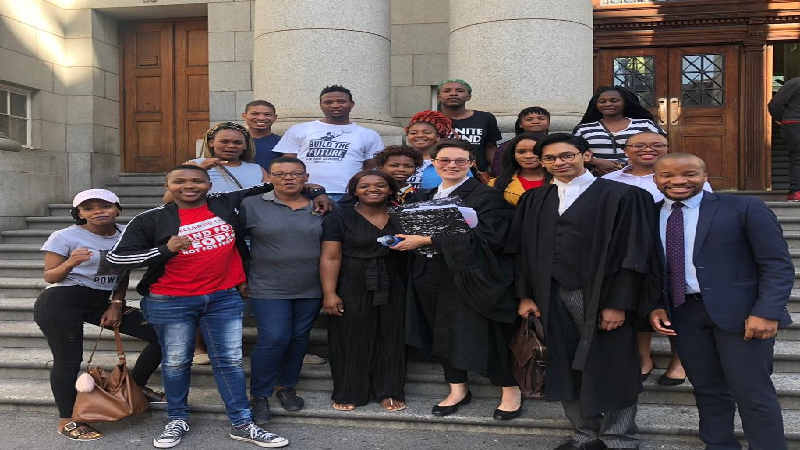The constitutional right to housing does not mean people can choose exactly where the house is or what type of house it is, the Western Cape High Court heard on Wednesday.
This was as social housing activists and government departments squared off over whether a plot in Sea Point should have been used for social housing instead of being sold to a private religious institution.
Counsel for the City of Cape Town, advocate Nasreen Bawa, said it is also not true that everybody except white people were pushed out of Cape Town’s inner city during apartheid.
READ | Land sale battle: Social activists, govt square off in court over R135m Sea Point sale
“Judge [Siraj] Desai can tell you,” said Bawa, discussing parts of Cape Town that escaped the brutal forced removals of the apartheid era.
Social activist groups Reclaim the City and Ndifuna Ukwazi are challenging the Western Cape government’s decision to sell the 1.7-hectare plot known as the Tafelberg site in Sea Point for R135m to the Phyllis Jowell Jewish Day School.
They feel the site is in the right place to help redress the apartheid planning that saw mostly white people living in the inner city, with black, coloured and Indian residents pushed out to as far afield as Mitchells Plain and Khayelitsha.
The @equal_education and EELC team at court today highlighting the link between spatial justice & education justice in the City of Cape Town! We thank the full team, including Advs Janice Bleazard and Uday Naidoo. #Land4PeopleNOT4profit #MovementLawyering pic.twitter.com/ODIZ6A99N2
— EE Law Centre (@EElawcentre) November 26, 2019
With that came long travelling times, the expense and dangers of commuting, and poor public services and facilities.
The activists feel the government failed to consider its constitutional obligations on the right to social housing when it agreed to sell to the school instead.
It also missed a chance to right the wrongs of apartheid by building the first inner-city social housing in 25 years.
The Western Cape government’s position is that it needed the R135m offered for the site so that it could buy a building for the department of education to save millions in lease payments every year.
It also felt that the site was not suitable for social housing, and it was not sure whether it fell in a “restructuring zone” which would have triggered “regeneration funding” to pay for social housing.
Bawa said it is not true to say there has been no change regarding more affordable housing in Cape Town in the past 25 years.
She said the city’s focus has been on the poorest of the poor, and geographically, these people lived on the outer periphery of Cape Town.
She said the old government policy used to be to build as many houses as possible.
However, in 2017 the former mayor of Cape Town Patricia De Lille announced a “180 degree shift” in this approach.
She said the City of Cape Town would start looking for sites closer to the city centre to develop as “integrated precincts”, and not just build houses outside the CBD anymore. Her reasoning was that this would help undo apartheid spatial planning.
Bawa said the provincial government has also been nagging the national government to release the Wingfield military base site which is near the Grand West Casino for affordable housing, but has not had any luck yet.
The Salt River market site is one of the planned integrated developments, and it has already been rezoned.
She said the City admits it has not produced social housing in central Cape Town, but it has done so elsewhere.
Social housing is aimed at people who earn between R1 500 and R15 000 and cannot get a house without some kind of government help.
The case continues on Thursday with submissions by the Phyllis Jowell Jewish Day School, which wants to buy the Sea Point site.
(SOURCE: NEWS24)






 WhatsApp us
WhatsApp us 

